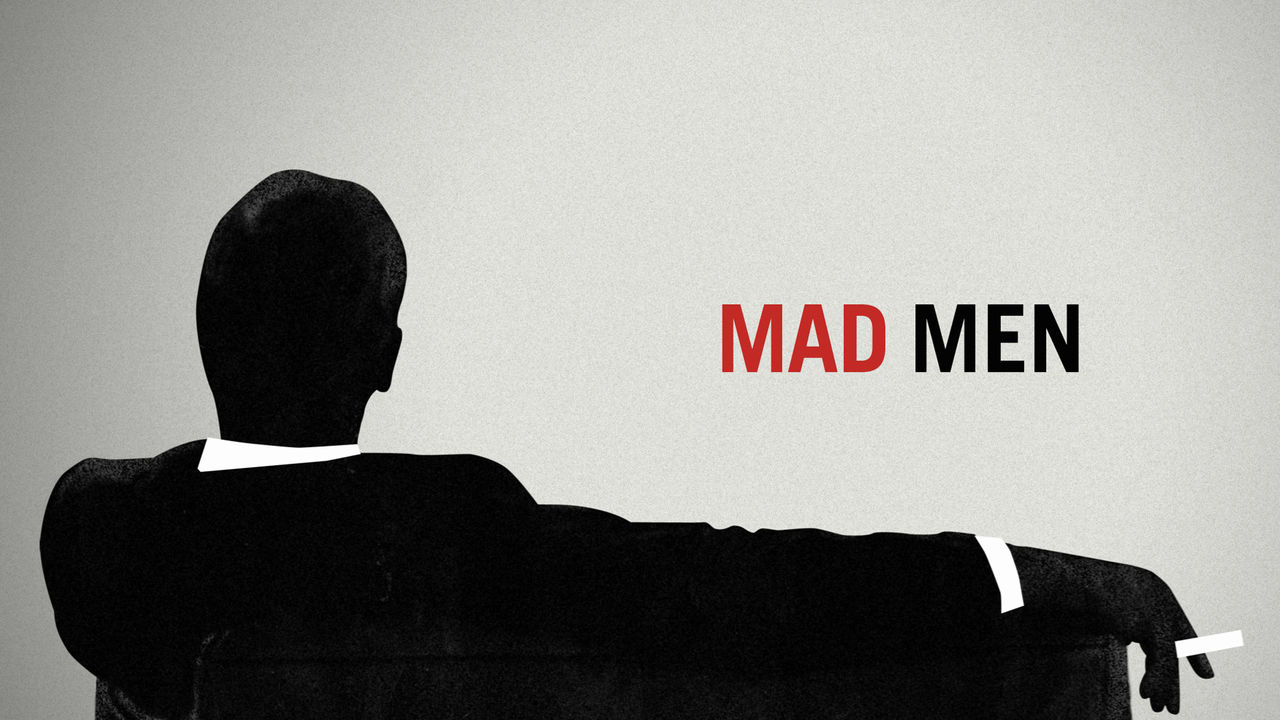Mad Men: Unfamiliar Gestures - Part 1
Jayne English
 “Now I am quietly waiting for
the catastrophe of my personality
to seem beautiful again...”
—Frank O’Hara
“Now I am quietly waiting for
the catastrophe of my personality
to seem beautiful again...”
—Frank O’Hara
We wondered if he’d make it, after years of watching the silhouetted man in the title sequence tumble past the images on the skyscraper. It was the confluence of verb and adjective, he was falling and fallen in every episode. We read it in his gestures.
We became familiar with these gestures, lighting a cigarette, pouring a drink, catching a woman. The straight posture, the raised eyebrows, the shrug. Many of his gestures spoke the language of a commanding presence, a successful partner, the iconic possessor of the American Dream.
In a way, the gestures were both the building and the unraveling of the man. He fed off them and they undid him, each in their turn. There were gestures that gave us a view into his murky depths. There was his assault of Bobbie Barrett in the ladies’ room when she attempted to bribe him. There was the moment he returned home with the cake for Sally’s birthday party only to pass the house, drive late into the night to brood. Maybe he was thinking about “having it all” as a party guest gloated, or maybe about Rachel Menken and being trapped in a marriage in the suburbs. There were the gestures inherent in two failed marriages, and many hookups and infidelities—at least 19 women in his life over a 10-year period.
There were some bright gestures blended with the dark. He was devoted to Anna Draper, the real Don Draper’s wife. He promised he would take care of her, gave her money for a porch, painted her living room. He sent her a book of Frank O’Hara’s poems that deeply moved him (the Beatnik at the bar couldn't see past the suit.). Anna once told him, “I know everything about you and I still love you." When he later heard about her death, he sobbed and told Peggy that Anna was “the only person in the world who really knew him.”
Gradually the degrading, selfish, and hurtful gestures transitioned to something more hopeful. What did it mean for him to show his children the brothel where he grew up, after carefully creating a polished father image to impress them? Seeing Don in front of the derelict house appearing a little mystified, and the children looking both stunned and awed, one critic writes, “Sally immediately recognizes the enormity of the gesture.”
After he made his fortune, reclaimed himself from alcoholism, and fell through almost every relationship he had, he began to look both out of place and at home in his new gestures. For once his presence in the room wasn’t commanding. In the McCann Erickson boardroom he seemed bewildered by the box lunch that replaced the full bar, and within minutes of the presentation, his expression seemed almost whimsical as he looked out the window and watched an airplane float past the Empire State Building. Weren’t we waiting for his usual rhythms to kick in? For him to stand up and say something creatively insightful that would put him back in his rightful place at the head of the conference table? Instead, he stood up and wandered out the door.
He went to spend time with his children, but they had become accustomed to his absence. Sally got a ride back to boarding school rather than wait for him to take her, and the boys were doing traditionally father-son activities, scouts and baseball, without him. He finds Betty in the kitchen reading her psychology book. He rubs her shoulders when he sees she is sore and she explains it was from carrying all her textbooks at registration. In a tender moment, she confides that she always wanted to study psychology, and Don smiles and encourages her, “Knock ‘em dead, Birdie.”
He builds bridges to Sally, keeping in touch with her while she’s at school, giving her advice and extra money for things like sport’s equipment. He gave Megan a million dollars because he felt bad about derailing her life. He pursued a waitress, not for his usual reasons, but because “she seemed lost.” It’s as if, seeing the collapse of his life in (and out of) the gray suit, he needed someone to rescue. He heads west, feeling a kinship to Jack Kerouac as he and a daydream Cooper quote from his book, “Whither goest thou, America, in thy shiny car in the night?” He helps a kid who tried to swindle him, with the grand gesture of giving him his car, to help him “choose a different route,” as one critic put it. Different from the road that Dick Whitman had so far paved with elaborate lies.
Read Part 2 here